Oct. 28, 2023 – Our UAW national negotiators reached a tentative agreement today with Stellantis. In a video announcement, UAW President Shawn Fain and Vice President Rich Boyer summarized the deal’s historic gains and discussed next steps in the ratification process. Watch the video here. Below is the full transcript of their remarks.
PRESIDENT SHAWN FAIN: UAW Family, It is with great pride that I join you here today with Vice President Rich Boyer to announce yet another major victory in the Stand Up Strike: today, we reached a tentative agreement with Stellantis.
Today is the 44th day of our Stand Up Strike.
44 days.
We called it the Stand Up Strike as a tribute to the Sit Down Strike, which built our great union almost ninety years ago.
The Sit Down strike showed the incredible power of regular working class people to fight for economic justice and win big.
After 44 days of occupying the GM plant in Flint, Michigan, the UAW announced victory.
On Day 44 of our Stand Up Strike, I am honored to announce that our union is once again victorious.
Once again, we have achieved what just weeks ago we were told was impossible.
At Stellantis in particular, we have not only secured a record contract.
We have begun to turn the tide in the war on the American working class.
And we truly are saving the American dream.
As you know, in our union, the members are the highest authority.
That means we have a process for rolling out the details of the agreement, and making sure every member gets a chance to make an informed decision.
This video is not even close to the full highlights or everything we won in this agreement.
It’s meant to give you all a sense of what we’ve achieved together, and how we will move forward together.
So here are the next steps.
First, we have reached a tentative agreement with Stellantis.
Next, your elected leadership in the UAW National Stellantis Council is going to come to Detroit and on Thursday, November 2nd, they will vote on whether to send the agreement to the membership.
If the Council votes to approve the agreement, then that evening we will be hosting a special Facebook Live with all of you to go through the deal in detail.
Your national negotiators and staff are working tirelessly right now to get the highlighter, the change pages, and White Book together.
Our goal is to have those ready and available digitally for all of you to access online on Thursday night.
Following the Council vote and the Facebook Live, we’ll hold regional meetings to walk through the agreement with local leadership, and then locals will hold informational meetings to get your questions answered.
After that, it’ll be up to the members to vote on the deal.
We’re going to let that democratic process take its course.
But we also wanted to provide you with some key takeaways of this historic agreement.
UAW VICE PRESIDENT RICH BOYER: I want to speak to something close to my heart.
Eight months ago, Stellantis idled Belvidere Assembly Plant, putting 1,200 of our members on the street.
This company ripped the heart out of that community.
Stellantis didn’t care.
Brothers and sisters, we made them care.
From the day I heard they were coming after Belvidere, I swore on one thing: We weren’t going to let them kill another working-class community.
UAW family, it is my great honor to announce that we have SAVED BELVIDERE.
From the strength of our Stand Up Strike, we are bringing back thousands of jobs to Belvidere.
We have won a new vehicle at Belvidere. It will be a mid-size truck and will have two shifts.
In addition to the vehicle commitment, Stellantis will ALSO be adding over a thousand jobs at a new battery plant in Belvidere.
We got everyone who lost their job at Belvidere put back on temporary layoff.
Meaning they’ll get SUB pay and healthcare until their job is back in Belvidere.
Under our contract, members from Belvidere who have been scattered across the country will have the right to return to Belvidere.
FAIN: We’ve done the impossible. We have moved mountains. We have re-opened an assembly plant the company closed.
And it’s not just Belvidere.
Going into these negotiations, the company was explicit.
They wanted to cut 5,000 jobs across Stellantis. We were looking at a net loss of jobs.
Our Stand Up Strike changed that equation.
Not only did we not lose those 5,000 jobs, we turned it all the way around.
By the end of this agreement, Stellantis will be ADDING 5,000 jobs.
BOYER: That’s 5,000 jobs we saved, and 5,000 MORE jobs we added.
I want to talk about two of our facilities that Stellantis had on the chopping block: Trenton Engine and Toledo Machining.
Both of these plants were told there was nothing left for them, that they would just go down to zero and eventually shut down.
Through the power of our Stand Up Strike, we have won product commitments that will save all of the jobs at Trenton Engine and double the workforce at Toledo Machining by the end of this agreement.
We won investments across the company. All together, we’ve won almost $19 billion dollars in new investment in the United States.
FAIN: And we didn’t just win one-time investments. We won the most powerful tool we have to protect those jobs: the right to strike.
We not only won the right to strike over plant closures.
We won the right to strike over product & investment.
That means if the company goes back on their word on any of these plants, we can strike the hell out of them.
UAW members across the country just showed the entire world the power that workers have when they go on strike.
Now we have our most powerful tool at the ready to protect our jobs, protect our communities, and to save the American dream.
For decades, we’ve been fighting with one hand tied behind our backs.
I’ll tell you the truth, sometimes it felt like both hands.
With this agreement, we are going from defense to offense.
We are going from the managed decline of the American working class to a new era of auto manufacturing.
They told us for years that the electric vehicle transition was a death sentence for good auto jobs in this country.
We Stood Up and said no.
With this agreement, we are proving them all wrong.
We are bringing back both combustion vehicle and battery jobs to Belvedere.
We’re adding 5,000 jobs in powertrain alone.
BOYER: And let’s talk about what kind of jobs they’re going to be.
We have won a 25% general wage increase over the course of this agreement.
With COLA, we expect the top rate to increase by over 30 percent, to above $40 an hour. Our starting rate will rise 67 percent.
Some of our lower-tier members at MOPAR will see an immediate 76% raise upon ratification.
UAW members at Stellantis will receive more in straight general wage over the next four and a half years than we have over the last 22 years combined.
At ratification, Stellantis workers will receive an immediate 11% wage increase.
That’s almost equal to ALL the wage increases since 2007 combined.
We also won back some core things that we had lost over the years.
We have won back our 2009 COLA.
We have won back our 3-year progression from before the Great Recession.
We have killed the divisive wage tier at MOPAR.
We have finally added to our pension multiplier, and provided more for retirement for current retirees, members with pensions, and members with 401(k)s.
FAIN: For decades, temps at the big three have been abused and exploited.
Over the life of the contract, some current Stellantis temps will see raises of up to 168%!
And the system of “perma-temps,” where this company keeps thousands and thousands of our members in permanent lower-class status.
That system has now ended.
Immediately upon ratification, thousands of temps will be converted.
No one will remain a temp for more than 9 months after ratification.
The days of low-wage, unstable jobs at the Big Three are coming to an end.
The days of the Big Three walking away from the American working class, destroying our communities, are coming to an end.
We’ve seen 65 plant closures in the past twenty years.
Think of the lives disrupted and destroyed.
Think of the communities that has affected.
We all know people who have been hit by that.
We are re-opening Belvidere.
We are saving Trenton Engine and Toledo Machining.
And with the right to strike over plant closures and the right to strike over product and investment, we are saying:
NOT. ONE. MORE.
Now there’s a whole lot more in this tentative agreement, and we will be rolling that out soon.
BOYER: Just like Ford, we are calling on our brave members at the Toledo Assembly Complex, the MOPAR parts depots, and Sterling Heights Assembly to return to work while we vote on this tentative agreement.
We will be rolling out the tentative agreement to the UAW Stellantis National Council this Thursday, November 2nd.
Following that vote, we will be hosting a special video address on Facebook on Thursday night to walk through the tentative agreement in detail with all of you.
Our national negotiators are working non-stop right now to get the Highlighter and white book ready by then, so you will have all the information you need to make an informed vote.
After the Facebook Live, we will be rolling out informational meetings in regions and locals across the country and then we will be voting.
FAIN: Through the power of the Stand Up Strike we have won a record-breaking contract.
We truly believe that we got every penny possible out of this company.
We left NOTHING on the table.
Vice President Boyer, your national negotiators, and myself couldn’t be more proud and honored to bring this tentative agreement to you for a vote.
But what happens next is not up to us.
The membership is the highest authority in our union.
It’s your vote and your choice.
So now our democratic process will unfold.
Your elected Council will meet and vote.
We will inform and educate.
And all of you will discuss, debate, and vote.
For months, I’ve been saying this fight is our generation’s defining moment.
Rich and I are honored to announce this victory and look forward to sharing more information with all of you in the days ahead.






UNION PLUS – COLLEGE PROGRAM
NYC Mayoral Candidate Zohran Mamdani and AG Letitia James Rally with Striking UAW Legal Workers to Demand Resources Needed to Represent Vulnerable New Yorkers
UAW Statement on the Republicans’ Anti-Worker Budget Reconciliation Bill